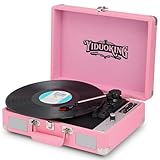Muddy Waters Vinyl Records Lps For Sale
Check out these new and used Muddy Waters vinyl records LPs for sale. We recommend starting your Muddy Waters vinyl collection with the essential albums Stylus SMR 850, The London Muddy Waters Sessions and Folk Singer And Rock Me. Our inventory is always changing, so check back often, or browse our list of vinyl records for sale from blues musicians.
Auto Amazon Links: No products found. No products found.

Muddy Waters, born McKinley Morganfield on April 4, 1913, in Issaquena County, Mississippi, is not merely a blues legend; he is the architect of a sound that reshaped the musical landscape. His influence extends far beyond the muddy waters of the Mississippi Delta, reaching the urban sprawl of Chicago and resonating in the hearts of countless musicians across genres. This comprehensive exploration delves into the life, music, and profound impact of Muddy Waters, tracing the roots of Chicago blues and the enduring legacy he crafted.
Early Life and the Delta Blues Crucible
Growing Up on Stovall Plantation
Muddy Waters’ journey began amidst the cotton fields of Stovall Plantation. The rural setting immersed him in the raw, emotive sounds of Delta blues, a musical tradition rooted in the African American experience. It was here that he absorbed the influences of Delta blues icons like Son House and Robert Johnson, shaping the foundation of his own distinctive style.
The Arrival of the Slide Guitar
Muddy Waters’ encounter with the slide guitar was a transformative moment. Inspired by the haunting slide work of Robert Johnson, Waters embraced the bottleneck slide technique, adding a unique dimension to his guitar playing. The slide became an extension of his emotions, allowing him to express the soulful depth of the blues in a way that would become iconic.
Migration to Chicago: The Birth of Chicago Blues
Seeking a Better Life
In 1943, Muddy Waters embarked on a journey that would alter the course of blues history – the migration to Chicago. Like many African Americans seeking economic opportunities and escaping the harsh conditions of the South, Waters settled in the bustling city. Chicago, with its industrial hum and urban vitality, would become the crucible for a new genre of blues – the Chicago blues.
Urbanization of the Blues
In Chicago, Muddy Waters found himself at the epicenter of a vibrant musical scene that was rapidly evolving. The electric blues was taking shape, fueled by amplification and a fusion of Delta roots with the energy of the city. Waters embraced the possibilities of amplification, electrifying his sound and setting the stage for the birth of Chicago blues.
Chess Records Era: Shaping the Chicago Blues Sound
The Chess Brothers’ Influence
Muddy Waters’ collaboration with Chess Records, founded by Leonard and Phil Chess, was a pivotal chapter in his career. The Chess Brothers recognized Waters’ unique talents and provided a platform for him to reach a broader audience. The partnership between Muddy Waters and Chess Records laid the groundwork for the golden era of Chicago blues.
Electrifying the Blues: “Rollin’ Stone” (1950)
In 1950, Muddy Waters recorded “Rollin’ Stone,” a seminal track that not only showcased his electrifying guitar work but also lent its name to a certain British rock band – The Rolling Stones. The song’s impact was profound, capturing the essence of the Chicago blues sound and foreshadowing the blues-rock explosion of the 1960s.
Muddy Waters’ Signature Style
Distinctive Vocals
Muddy Waters’ vocals were a force of nature – deep, resonant, and dripping with the essence of the Delta. His voice, a powerful instrument in its own right, conveyed the pain, passion, and triumphs of the blues narrative. From the growling lows to the impassioned highs, Waters’ vocal delivery was a defining element of his signature style.
Slide Guitar Mastery
Waters’ mastery of the slide guitar set him apart as a virtuoso in the blues world. His slide work, characterized by expressive phrasing and soulful bends, created a sound that was simultaneously primal and sophisticated. The synergy between his vocals and slide guitar became the hallmark of Muddy Waters’ sound, influencing generations of blues and rock musicians.
Hits and Notable Albums
“I Can’t Be Satisfied” (1948)
In 1948, Muddy Waters recorded “I Can’t Be Satisfied,” a groundbreaking track that exemplified the evolution of the blues. The song’s driving rhythm, impassioned vocals, and electrifying slide guitar marked a departure from traditional acoustic blues, signaling the arrival of a new era in the genre.
“Mannish Boy” (1955)
Another iconic recording, “Mannish Boy,” released in 1955, further solidified Muddy Waters’ status as a blues pioneer. The swaggering confidence of the lyrics, coupled with the infectious rhythm, made the song an anthem of masculinity and a testament to Waters’ ability to infuse the blues with a contemporary edge.
“Folk Singer” (1964)
In a departure from his electrified sound, Muddy Waters released “Folk Singer” in 1964. This acoustic album showcased Waters’ versatility and harked back to the authenticity of his Delta roots. The stripped-down arrangements allowed his vocals and guitar to take center stage, revealing the soulful core of his artistry.
Muddy Waters’ Influence on Future Generations
The British Invasion
Muddy Waters’ impact extended across the Atlantic during the British Invasion of the 1960s. Young British musicians, enamored with the raw authenticity of American blues, looked to Muddy Waters as a primary influence. Bands like The Rolling Stones, The Yardbirds, and Led Zeppelin covered his songs, introducing a new generation to the blues and helping to spark a global blues revival.
Blues-Rock Pioneers
The electrifying energy of Muddy Waters’ Chicago blues found a natural home in the emerging blues-rock genre. Artists like Jimi Hendrix, Eric Clapton, and Stevie Ray Vaughan, deeply influenced by Waters’ guitar style and vocal delivery, incorporated elements of his sound into their own groundbreaking work. Muddy Waters became a touchstone for those seeking to blend the power of rock with the soul of the blues.
Legacy in Contemporary Music
Muddy Waters’ influence is not confined to the annals of history; it reverberates through the work of contemporary artists across genres. From the rootsy blues-rock of The Black Keys to the experimental sounds of Jack White, the spirit of Muddy Waters continues to inspire and shape the sonic landscape of modern music.
Later Years and Recognition
Awards and Accolades
In recognition of his immeasurable contributions to the blues, Muddy Waters received numerous awards and honors throughout his career. He was a recipient of the Grammy Lifetime Achievement Award and was posthumously inducted into the Rock and Roll Hall of Fame in 1987. Waters’ impact was not only acknowledged within the blues community but also by the broader music industry.
Final Performances and Passing
Muddy Waters continued to perform well into the 1970s, showcasing the enduring power of his music. His final performance took place at the Chicago Blues Festival in 1982, a fitting swan song for a blues icon. On April 30, 1983, Muddy Waters passed away at the age of 70, leaving behind a legacy that would continue to shape the blues for generations to come.
Conclusion
Muddy Waters stands as a colossus in the world of blues – a trailblazer, an innovator, and the embodiment of the Delta spirit transplanted into the urban landscape of Chicago. His contributions to the blues, from electrifying the genre to influencing the course of rock music, are immeasurable. Muddy Waters not only played the blues; he lived and breathed it, leaving an indelible mark on the musical tapestry of the 20th century. As we celebrate his life and legacy, we recognize Muddy Waters as more than a bluesman; he is the eternal source from which the river of American music continues to flow.
MUDDY WATERS BEST OF MUDDY WATERS - 180-GRAM VINYL LP " NEW, SEALED "
 | $21.98 Buy It on eBay for only: $21.98 Buy It Now on eBay |
Muddy Waters - Hard Again [New Vinyl LP] 180 Gram
 | $32.48 Buy It on eBay for only: $32.48 Buy It Now on eBay |
Muddy Waters – Muddy "Mississippi" Waters Live ; 1979 Vintage Vinyl LP VG+
 | $13.99 Buy It on eBay for only: $13.99 Buy It Now on eBay |
Muddy Waters Blues 78 Early Morning Blues She Moves Me Chess 1490
 | $0.99 (1 bid) End Date: Sunday Jan-11-2026 09:29:38 EST Bid |
MUDDY WATERS - HARD AGAIN - 180-GRAM VINYL LP " NEW, SEALED "
 | $32.98 Buy It on eBay for only: $32.98 Buy It Now on eBay |
Muddy Waters The Best Of Muddy Waters (Royal Blue Vinyl) Records & LPs New
 | $19.40 Buy It on eBay for only: $19.40 Buy It Now on eBay |
Muddy Waters-Best of Muddy Waters LP Chess 1427 ORIGINAL 1958 VG++Blues
 | $249.99 Buy It on eBay for only: $249.99 Buy It Now on eBay |
Muddy Waters The Best Of Muddy Waters [Import] Records & LPs New
 | $21.89 Buy It on eBay for only: $21.89 Buy It Now on eBay |
Muddy Waters - Muddy, Brass & The Blues [New Vinyl LP]
 | $26.21 Buy It on eBay for only: $26.21 Buy It Now on eBay |
Muddy Waters - The Best of Muddy Waters (Chess 75 Series) [New Vinyl LP] 180 Gra
 | $40.73 Buy It on eBay for only: $40.73 Buy It Now on eBay |
Muddy Waters - Mississippi Live LP - Blue Sky - Tested VG+ Vinyl
 | $10.80 Buy It on eBay for only: $10.80 Buy It Now on eBay |
MUDDY WATERS: king bee BLUE SKY 12" LP 33 RPM Sealed
 | $40.00 Buy It on eBay for only: $40.00 Buy It Now on eBay |
Muddy Waters The Best Of Muddy Waters P-Vine Special PLP-801 Japan VINYL LP OBI
 | $11.50 (6 bids) End Date: Sunday Jan-11-2026 17:10:35 EST Bid |
Best of Muddy Waters Vinyl MINT
 | $21.00 Buy It on eBay for only: $21.00 Buy It Now on eBay |
1969 US Stereo Muddy Waters After The Rain Cadet Concept orignal Inner Sleeve
 | $69.99 Buy It on eBay for only: $69.99 Buy It Now on eBay |
ULTRASONIC🔥Muddy Waters & Howlin’ Wolf London Revisited⭐️’74 Jan 24 US 1st Pr
 | $28.00 Buy It on eBay for only: $28.00 Buy It Now on eBay |
Muddy Waters The Best Of (180 Gram Vinyl, Deluxe Gatefold Edition) [Import] Reco
 | $21.56 Buy It on eBay for only: $21.56 Buy It Now on eBay |
Blues Deluxe SEALED Vinyl LP Record 1980 Chicago Fest Muddy Waters Koko Taylor
 | $28.99 Buy It on eBay for only: $28.99 Buy It Now on eBay |
Muddy Waters Blues 78 Blow Wind Blow bw Mad Love on Chess 1550
 | $24.50 Buy It on eBay for only: $24.50 Buy It Now on eBay |
Muddy Waters - Sings Big Bill Broonzy LP - Original Chess Masters EX/EX
 | $9.99 End Date: Monday Jan-12-2026 10:14:25 EST Buy It on eBay for only: $9.99 Buy It Now on eBay |

![The Life of a Showgirl[Sweat & Vanilla Perfume Orange Glitter Vinyl] #1](https://m.media-amazon.com/images/I/51SJhJbv35L._SL100_.jpg)
![The Life of a Showgirl[Sweat & Vanilla Perfume Orange Glitter Vinyl] #2](https://m.media-amazon.com/images/I/5198D2rwyNL._SL100_.jpg)


![Merry Christmas II You [15th Anniversary Shiny Starlight LP] [Amazon Exclusive] #1](https://m.media-amazon.com/images/I/51MOyCwkOzL._SL100_.jpg)

![Currents [2 LP] #1](https://m.media-amazon.com/images/I/61zjlISscDL._SL100_.jpg)
![Currents [2 LP] #2](https://m.media-amazon.com/images/I/51ETyCkBSyL._SL100_.jpg)













![[Exquisite Appearance] Built from wood and metal materials with a unique sense of layering; The streamlined corner design is truly atmospheric and stylish(Note: long hold the start button to turn the power on, and press again to start) [All in 1] Thi...](https://m.media-amazon.com/images/I/41vovGjFkeL._SL160_.jpg)





































